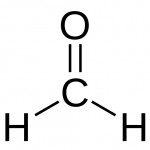Formaldehyde Regulation and Related Disorders
Health related information on formaldehyde
Provided by BFGC Health Committee, Inae Lee, February 2011
Nasopharyngeal cancer
The relationship between nasopharyngeal cancer and exposure to formaldehyde has been investigated in seven case–control studies, five of which found elevated risks for overall exposure to formaldehyde or in higher exposure categories, including one in which the increase in risk was statistically significant.
Formaldehyde: An Unwelcome Guest

By HCLI Staff
Formaldehyde is one of the most commonly known indoor pollutants. Less familiar might be that natural processes in the atmosphere may contribute up to 90 percent of the total formaldehyde in our environment[1]. As seen in its simple molecular formula H2-C=O (or CH2O, or HCHO, or H2CO) formaldehyde is made of carbon, hydrogen and oxygen, constituting the most basic form of aldehyde, called methanal by its systematic name. Numerous natural and anthropogenic sources contribute to the ubiquitous occurrence of this volatile organic compound (VOC). Even interstellar formaldehyde is widely spread. It was the first polyatomic organic molecule detected in the interstellar medium (ISM), the gas and dust that exist in open space between the stars.[2]
When A Nuclear Reactor Breaks Down

By Justin H. Joe, Ph.D.
Mount Kisco, NY
In 1986, in a city named Chernobyl in Northern Ukraine, a poorly designed test of a nuclear reactor cooling system caused a huge power surge that initiated a massive explosion in the reactor [1, 2]. There was no containment vessel, and radioactive gases and materials were released into the atmosphere.
Copyright © 2011 Hemato-Centric Life Institute